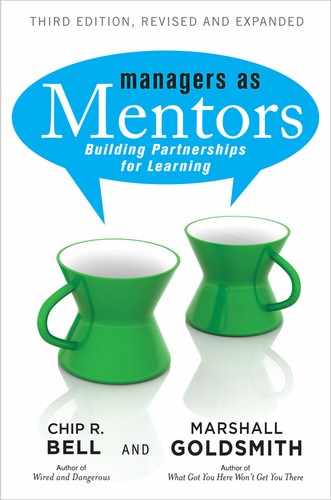Mentoring People Who Are Very Different
Dances with Wolves was one of Kevin Costner’s crowning movie achievements. Costner directed and played the lead role in the film based on the book by Michael Blake. It won seven Academy Awards, including best picture. It is the story of Lieutenant John Dunbar, an accidental Civil War hero who is given his choice of assignments after the war. He requests a solitary remote outpost, a rundown hut on the Western Plains in the middle of Indian Territory. In the late 1860s, the prejudicial view of Native Americans was that they were thieves and savages; Native Americans saw whites as a greedy inferior race with no reverence for nature and no skill with horses. If reciprocal learning was to occur in the face of such diversity, it would require a special approach.
Lieutenant Dunbar, after his first encounter with a representative of a nearby Sioux tribe, Kicking Bird, wrote in his diary that the man was confused and anxious but acknowledged the Indian “was a magnificent man.” Kicking Bird, a wise medicine man, told the tribe elders, “The white man was brave and did not seem to be eager for war.” The stage was set for openness to difference.
Find a Common Emotional Meeting Ground
When Dunbar and Kicking Bird sat together for the first time at Dunbar’s solitary post in the middle of the plains, their language difference posed a major challenge: Dunbar did not speak Lakota; Kicking Bird did not speak English. The dilemma weighed heavy on both to find a way to begin to fashion any sort of connection. Finally, Lieutenant Dunbar got down on all fours, put a rolled up piece of clothing under his shirt creating a hump at his shoulders, and began to paw the ground. Wind in His Hair, one of Kicking Bird’s associates, commented, “His mind is gone!” But then Kicking Bird realized Dunbar was mimicking a buffalo. “Tatunka, tatunka!” Kicking Bird explained. Dunbar poorly pronounced the Lakota word back and exclaimed, “Yes, yes, buffalo, buffalo.” This time Kicking Bird poorly pronounced the English word back, and a connection was suddenly forged. They both laughed.
As Kicking Bird and the accompanying braves left Dunbar’s solitary post to return to their own camp, Dunbar said to himself: “Nothing I have been told about these people is correct. They are not thieves or beggars. They are not the bogeymen they are made out to be. On the contrary, they are polite guests and I enjoy their humor.” Mentoring between people with major differences begins with finding a common emotional meeting ground.
Give a Gift That Is Important to You
On the second visit, Kicking Bird brought Dunbar a large buffalo-skin blanket. It was a cherished prize for the Sioux Indians, who followed large herds of buffalo for food and clothing. With hard winters, Kicking Bird rightly predicted Dunbar was ill-supplied with clothing that would properly protect from the cold. Dunbar treated Kicking Bird with coffee with sugar. The Kicking Bird delegation of braves sat patiently as Dunbar ground the coffee and put it in their cups. None were impressed with the taste until Dunbar added ground sugar, something they had never seen. Each left with a tin cup, a bag of coffee, and a bag of sugar. For the first time, they waved as they left. Begin the mentoring encounter with a gift that is important to you that might be shared with the protégé. Guessing at what might be important to them could backfire and lead to an awkward start.
Sharing Who You Are, Not Just What You Want
The first time Lieutenant Dunbar was invited to the Sioux encampment for a private meeting with Kicking Bird, the two were joined by Stands With a Fist, a white woman who as a child had lost her entire family and been raised by the Sioux. Her English was very rusty as she struggled to serve as interpreter to the two. Immediately, Kicking Bird wanted to know why the military outpost was there and when other white men might come. But Stands With a Fist intervened, saying that personal introductions should come first. Even though the two men had had several encounters, this was the first time an interpreter had enabled them to communicate. And once each knew the other’s name, a true relationship began. As Dunbar left to return to his hut, he said to himself: “They are people so eager to laugh, so devoted to family, so dedicated to each other. The only word that comes to mind is ‘harmony.’” Mentoring at its finest is a harmonious partnership between two people who share who they are, not just what they want of each other.
Mentoring in precarious relationships offers both special rewards and special challenges. The secret to success lies in taking what is ostensibly a unique relationship and managing the exchange of wisdom so that it maintains and honors equality. Focusing on humility, sincere consideration, authentic affirmation, and balance can foster an exchange that brings significant growth to both mentor and protégé.
